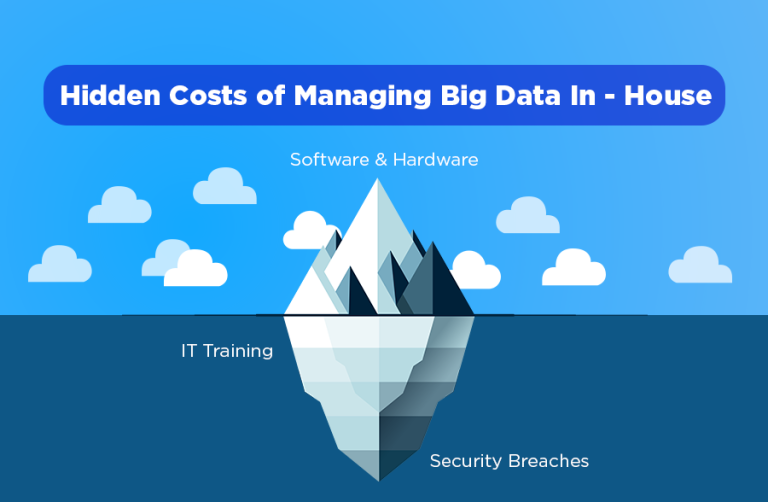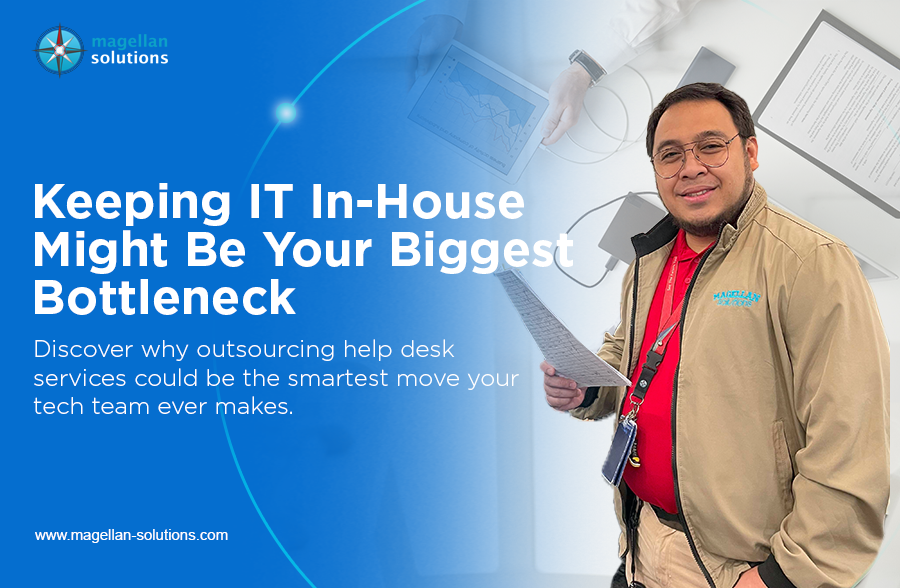Schedule a FREE call with our outsourcing expert now and get a precise quotation that meets your requirements. Don't wait - get started today!
Unnoticed Pitfalls in Data Management
Handling large data sets goes beyond storage—it requires precision, security, and efficiency. Many SMEs believe storing data is enough, but without proper management, it becomes a burden rather than an asset. Here are some challenges that often go unnoticed:
1. Data Fragmentation Slows Decision-Making
Information scattered across different platforms, spreadsheets, and software creates confusion. Employees waste time searching for the right data, leading to slower response times. Without a centralized system, businesses struggle to get a complete view of their operations, making it harder to identify trends and make informed choices. Inconsistent data access also causes miscommunication between teams, further delaying important decisions.
2. Excessive Data Duplication Wastes Resources
When businesses store the same data multiple times, they use more space than necessary. This not only increases storage costs but also slows down system performance. Duplicated data also makes reporting less reliable, as different departments may work with conflicting versions of the same information. Regular data cleaning and automated tools can help eliminate redundancies and improve efficiency.
3. Manual Data Entry Increases Error Rates
When employees manually enter data, mistakes are bound to happen. A single typo in a customer record or financial report can cause confusion and costly errors. Incorrect data affects everything from customer service to compliance with regulations.
Without automated validation tools, businesses risk making decisions based on false information, leading to financial losses and operational setbacks. Implementing accuracy checks and automated data entry can reduce these risks.
4. Compliance Gaps Go Unnoticed Until It’s Too Late
Many businesses are unaware of data regulations until they face legal trouble. Non-compliance with data protection laws can result in hefty fines and reputational damage, which can be difficult to recover from.
Without clear policies and regular audits, businesses may unknowingly store or process data in ways that violate industry standards and government regulations. This lack of oversight can lead to security breaches, loss of customer trust, and restrictions on business operations. Staying updated on compliance requirements and implementing strict data policies can prevent these risks.
Why Outsourcing is a Smart Move for Data Management
Data outsourcing is more than just handing off tasks—it enhances accuracy, security, and efficiency. Managing data in-house can be overwhelming, especially for SMEs with limited resources. Outsourcing providers bring expertise, advanced technology, and compliance knowledge, ensuring businesses can maximize the value of their data. Here’s how:
1. Centralized Data Processing Reduces Fragmentation
Outsourcing partners consolidate data from multiple sources into a structured system. Instead of scattered spreadsheets and disconnected platforms, businesses get a single, well-organized database. This makes information easy to retrieve, analyze, and share across teams. With better data access, companies can respond quickly to market trends, customer needs, and internal demands, leading to faster and smarter decision-making.
2. Automated Deduplication Improves Efficiency
Duplicate data takes up unnecessary space and slows down operations. Outsourcing providers use advanced software to:
- Scan databases for repeated entries
- Merging or removing redundant records
- Optimize storage and system performance
With these tools, businesses avoid cluttered databases, reduce processing time, and prevent inconsistencies in reports. Streamlined workflows mean employees spend less time sorting data and more time focusing on strategic tasks.
3. AI-Powered Validation Minimizes Human Errors
Manual data entry is prone to mistakes, but AI-driven systems can:
- Identify typos, missing values, and inconsistencies
- Cross-check data against predefined rules
- Correct errors in real-time
Instead of relying on manual verification, outsourced teams use automated validation to ensure data is accurate, consistent, and reliable. This reduces the risk of costly errors and helps businesses make decisions based on trustworthy information.
4. Compliance Monitoring Keeps Businesses Safe
Experienced outsourcing providers stay updated on regulatory requirements, ensuring all data-handling practices align with legal standards. They help businesses comply with industry-specific rules such as:
- Data privacy laws (e.g., GDPR, CCPA)
- Financial reporting standards
- Industry-specific security protocols
By outsourcing compliance monitoring, businesses avoid legal risks, prevent costly fines, and maintain customer trust. A well-managed compliance strategy also reduces the chances of data breaches and strengthens overall security.

Advanced Technologies Powering Outsourced Data Management
Technology plays a key role in optimizing data outsourcing solutions. Modern innovations speed up processing and improve security, accuracy, and scalability. Businesses that leverage these technologies gain a competitive edge by managing data more effectively. Here’s how:
1. Blockchain for Secure Data Transactions
Blockchain technology ensures data integrity by creating tamper-proof records. Each piece of data is stored in a decentralized system, making it nearly impossible for unauthorized users to alter or delete critical business information. This is especially useful for financial records, customer transactions, and legal documents, where accuracy and security are essential.
Additionally, blockchain provides transparency, allowing businesses to track real-time data changes and prevent fraud.
2. Robotic Process Automation (RPA) for Data Sorting
AI-powered bots can categorize, organize, and process data faster than human workers. These bots can extract information from multiple sources, standardize formats, and classify data without human intervention.
Businesses reduce errors and save valuable time by automating repetitive tasks such as data entry, validation, and migration. This allows employees to focus on strategic projects instead of routine administrative work.
3. Predictive Analytics for Better Decision-Making
Outsourced data teams use predictive models to analyze historical trends and forecast future outcomes. By examining patterns in customer behavior, market conditions, and operational performance, businesses can make proactive decisions rather than react to issues after they arise.
Predictive analytics helps companies optimize inventory, personalize marketing strategies, and anticipate customer needs, leading to smarter and more profitable business strategies.
4. Cloud-Based Solutions for Scalable Storage
With cloud computing, businesses can scale their storage needs without investing in expensive infrastructure. Outsourcing providers offer flexible storage solutions that adjust to growing data demands, ensuring companies only pay for what they use.
Cloud storage also enhances accessibility, allowing teams to retrieve and update data from anywhere with an internet connection. Additionally, built-in security measures, such as encryption and automated backups, protect valuable business information from cyber threats and data loss.
How to Choose the Right Data Outsourcing Partner
Not all outsourcing providers offer the same level of expertise. Choosing the right partner is essential for ensuring data accuracy, security, and compliance. Here’s what SMEs should evaluate:
1. Industry-Specific Knowledge Ensures Accuracy
A provider familiar with your sector understands the nuances of your data requirements. Industry expertise helps structure, format, and process data according to business needs. This reduces errors and improves operational efficiency, ensuring accurate reports, analytics, and forecasts. Additionally, an industry-focused provider can offer insights and best practices tailored to your business.
2. Security Infrastructure Protects Sensitive Information
A strong security framework—including encryption, access controls, and threat detection—protects against cyber threats. Businesses should choose a provider prioritizing data security at every level, from secure storage to controlled access. Regular security audits, employee training, and compliance with international cybersecurity standards strengthen protection against breaches and unauthorized access.
3. Technology Stack Determines Processing Speed
The right outsourcing partner invests in advanced technology, including AI-powered analytics, RPA, and cloud computing. This ensures data is processed faster and more accurately, reducing the risk of human errors. Automation tools help streamline workflows, while cloud-based solutions improve accessibility and scalability. A technology-driven provider allows businesses to handle large data volumes efficiently without compromising quality.
4. Regulatory Compliance Keeps Your Business Safe
Data protection laws vary across industries and locations, making compliance a critical factor. An experienced outsourcing provider ensures adherence to regulations like GDPR, HIPAA, or ISO standards, reducing legal risks and potential penalties. A compliant provider stays updated on changing regulations, implements proper data handling practices, and maintains audit trails to demonstrate compliance in case of inspections.
Optimize Your Data, Maximize Efficiency
Your data should work for you, not against you. Don’t let inefficiencies, errors, and security risks slow your business down. At Magellan Solutions, we specialize in transforming raw data into actionable insights that drive efficiency and growth. Whether you need streamlined data entry, real-time analytics, or secure cloud storage, we have the expertise and technology to help.
Book your FREE 60-minute business consultation today—no commitments, just expert-driven strategies to optimize your data management. Let’s identify your biggest data challenges and craft a custom solution that enhances accuracy, efficiency, and security. Take control of your data and gain a competitive edge—partner with us today!
















